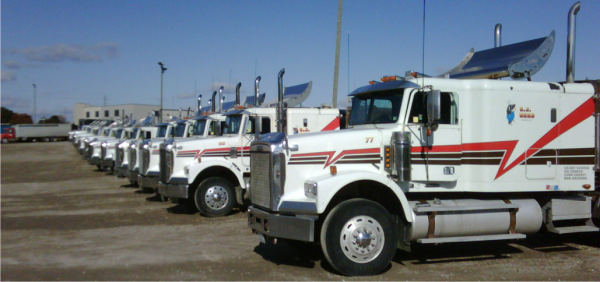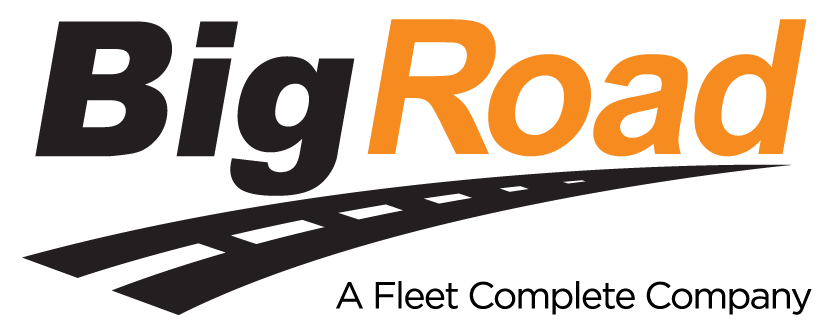B.J. Bear Gain Co. and BigRoad
B.J. Bear is a great example of a medium-sized trucking firm that has embraced technology. The Kitchener-based operation took a big leap last year. B.J. Bear invested in a major satellite tracking solution to better manage its fleet of 30 units that haul refuse across Ontario and flatbeds running North America-wide. Subsequent to this investment, B.J. Bear learned about BigRoad and decided to test the mobile application in parallel.
“The BigRoad app is fantastic for communications with the truck and driver,” says Ray Werbicky, B.J. Bear’s General Manager. “The messaging is instantaneous. There is no delay like Quallcomm or PeopleNet. And the mapping with BigRoad is more accurate. You know exactly where the truck is and it’s up to date.”
Werbicky says his drivers also use BigRoad elogs as an “etch-a-sketch” or visual representation of their day in parallel with paper logs today. He says the logs are very easy to use, as simple as pushing a button for on/off duty status. Going forward B.J. Bear anticipate using the electronic logs to replace paper logs across the fleet. B.J. Bear has also made recommendations to BigRoad to expand features like breadcrumb trailing, allowing for deeper route analysis.
Old-school satellite tracking? Too complex and costly.
“The biggest challenge with the existing satellite system right now is integrating everything,” says Werbicky. “If you’re a smaller company, it’s not a big deal. But when you start putting 30 drivers’ revenue into the system, that’s where it gets difficult. We pay our driver off of mileage and drops and picks.”
B.J. Bear’s experience with their first tracking system (heavy hardware OBC) is a cautionary tale for many smaller fleets. The value of better fleet telematics is indisputable, but deployment can be costly and complex. Werbicky sees BIgRoad as a good option for fleets that are starting down the path of technology deployment and need to avoid the upfront investment in servers, an IT department, hardware, and staff to manage it all. B.J. Bear today has one person dedicated full time to managing paperwork from the various systems to ensure payroll is accurate.

“We had nothing before and we looked at everything prior to going with the satellite system,” says Werbicky. “At that time if BigRoad had been around we would have looked at it because the other investment was huge for us. That was $54,000 (upfront hardware investment) of profit gone. We already had cell phones, we could have got rid of older phones and put in tablets and we would have been in business with BigRoad.”
B.J. Bear prefers that its drivers use tablets running BigRoad instead of smartphones because they can be mounted and don’t promote handling while driving. Legislation in the U.S. prohibits handheld use while driving and extends liability to fleet owners. The result is some players in the industry—mainly vendors who sell heavy-hardware onboard computers as a more expensive alternative—downplay the impact mobile apps for can have for drivers.
BigRoad helps to level the technology playing field.
Werbicky is a big fisherman and compares the well-funded telematics lobby to what’s happening in Canadian fishing. There is a large lobby backed by plastic lure makers banning live bait fishing in Canada. While they claim live bait moving across lake ecosystems is harmful, they are self-interested to protect their business and even grow it.
“The big players know about these trucking apps coming out because they can make life easier,” says Webicky. “For a smaller fleet where a guy has his fingers in everything, it’s great. Right now I go to my computer logon remotely and then do everything of a laptop. With BigRoad, I do everything off my Android phone.”
